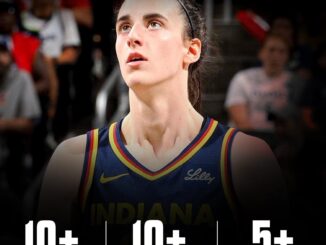
Lisa Bluder believes that even the most talented individuals have room to grow.
That’s why, when recruiting Caitlin Clark, Bluder didn’t focus on Clark’s strengths. Everyone already knew those. Instead, she emphasized areas where Clark needed development. Over time, Bluder helped shape Clark from a driven prospect into one of the most influential athletes of her generation. After an illustrious career, Bluder retired in May 2024 as the winningest coach in Big Ten history, having spent four high-profile years coaching Clark. They grew together alongside the Iowa team. Bluder acknowledges the special nature of that journey but is candid about the effort it required.
How do you lead an exceptional talent while maintaining team unity and culture?
Whether in sports or business, leaders occasionally work with uniquely gifted individuals. The challenge is helping them improve while fostering collective growth. Bluder explained her approach when working with Clark: the key is setting expectations early. She made it clear during recruitment that Clark wasn’t a finished product. Clark embraced that mindset she was eager to evolve.
Instead of reinforcing what Clark already did well, Bluder and her staff zeroed in on her weaknesses. They reviewed film with her, highlighted areas needing improvement, and showed how addressing those could elevate both her performance and the team’s success. That’s how real development happens not just by leveraging strengths, but by confronting limitations.
Why did this partnership work so well?
Bluder says it comes down to mutual fit. She wants to coach players who are open to feedback and motivated to improve, not those who think they already know everything. Clark was confident but coachable a rare combination. The Iowa program encouraged accountability, especially peer-to-peer. Accepting constructive criticism was vital to individual and team success, and Clark embraced that.
Bluder emphasizes that greatness isn’t built on talent alone. It’s about work ethic and attitude. Clark didn’t begin her career by making deep three-pointers. She started with fundamentals. That commitment to steady growth and staying positive was crucial. Bluder notes how negativity in a team environment can be corrosive, so she prioritizes players with uplifting mindsets.
What about managing the attention Clark received?
Bluder didn’t shy away from the challenge. She addressed it head-on with the team, reminding them that Clark’s spotlight illuminated everyone. “When Caitlin shines, we all shine,” she told them. Rather than resenting the attention Clark received, the team was encouraged to see it as an opportunity for collective elevation. That buy-in was essential.
Still, it wasn’t seamless from the start. During Clark’s freshman year, she struggled with collaboration. Accustomed to being the focal point, she had to learn how to trust teammates and share responsibility. Some players transferred because they didn’t gel with her approach. But Clark grew—she became more inclusive, refined her leadership, and matured.
How did Bluder help Clark develop leadership skills?
They began holding weekly leadership meetings. Bluder had Clark read books like Phil Jackson’s Sacred Hoops and they’d discuss the takeaways. She also brought in sports psychologists to work individually with Clark and the team, helping her understand her impact as a leader. Video review sessions showed how her body language or reactions could influence others, often without her realizing it.
Bluder says these efforts paid off. Clark began building stronger relationships with teammates. Her on-court demeanor improved. While she remained fiery and expressive, teammates learned not to take it personally. In fact, they became protective of her defending her from opponents or fans. That solidarity was a key part of the team’s culture.
And culture, Bluder insists, is everything.
People often assume Clark created the program’s strong culture. But Bluder argues it was the other way around: the existing culture attracted Clark. Maintaining that culture required continuous work. It wasn’t a motto on the wall it was an everyday commitment, constantly reinforced through actions and conversations.
What leadership lessons stand out most to Bluder now?
For her, great leadership starts with a clear vision. Leaders must know what they want their team, company, or product to look like. Then, they need to recruit people who align with that vision. Just as important is the ability to communicate it effectively. Without that buy-in, even the best vision won’t come to life.



Be the first to comment